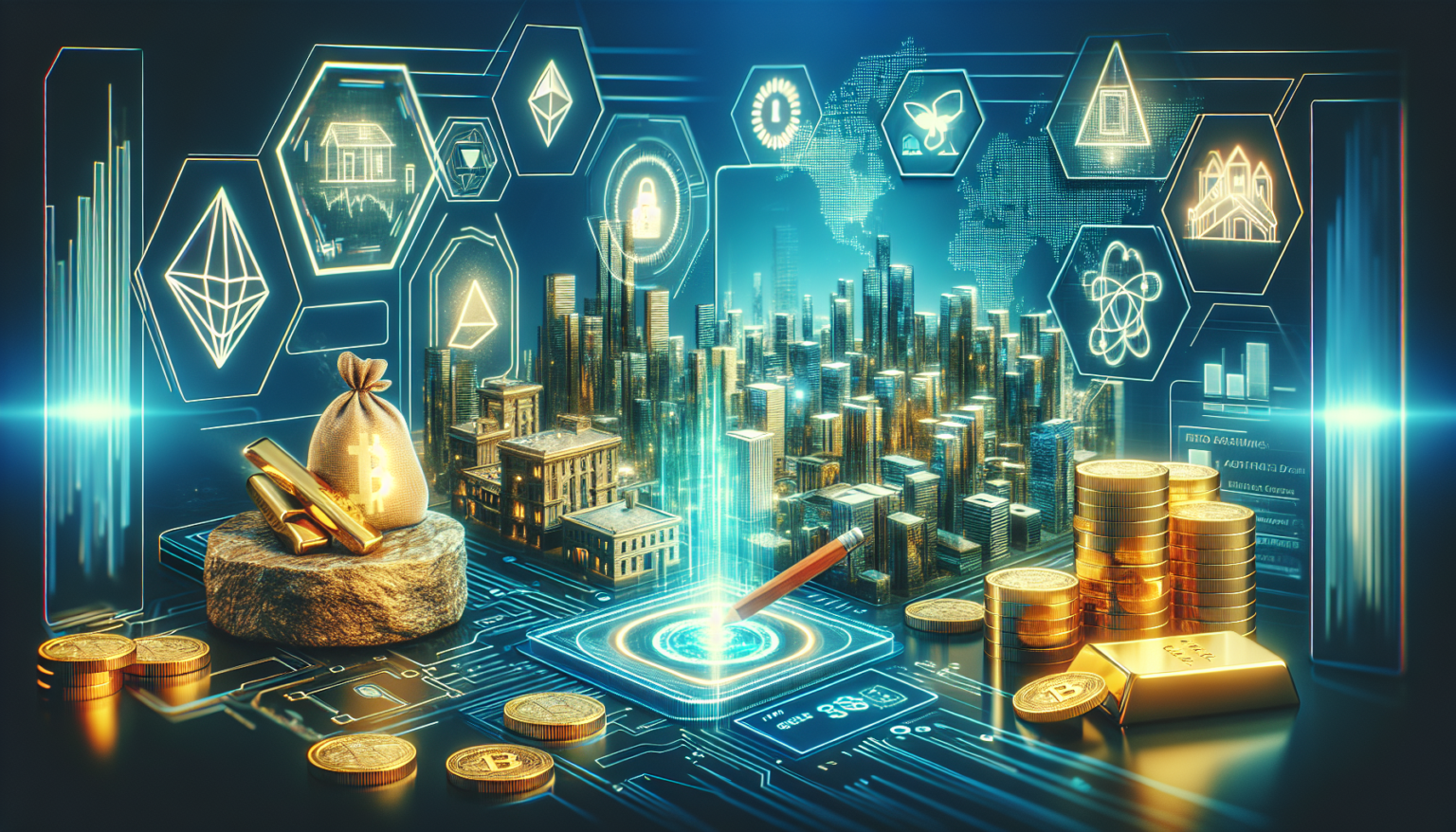The Concept of Asset Tokenization
Understanding Tokenization
Tokenization refers to the process of converting ownership rights to a specific asset into a digital token that exists on a blockchain. This can apply to various asset types, including real estate, art, equities, and even commodities. Essentially, tokenization turns a tangible asset into a digital representation that can be easily bought, sold, and traded on decentralized platforms.
The Mechanics Behind Tokenization
In simple terms, tokenization breaks an asset down into smaller, more manageable pieces. Each piece is represented by a token, making it easier for investors to buy fractions of expensive assets. For example, an artwork worth one million dollars could be divided into 1,000 tokens, allowing multiple investors to own a part of it for just a fraction of the total price.
Blockchain Technology as a Foundation
Blockchain serves as the backbone of asset tokenization. This decentralized ledger ensures transparency and security. Each transaction is recorded and cannot be altered, which builds trust among investors. Plus, blockchain enables smart contracts—self-executing agreements coded into the blockchain, facilitating things like automatic dividend payments when assets generate income.
Regulatory Considerations
Asset tokenization also faces regulatory challenges that vary by jurisdiction. Governments worldwide are still figuring out how to treat tokenized assets legally. This legality impacts how tokens can be bought and sold and the obligations of token issuers. Some regions are more progressive than others, creating a patchwork of regulations that can complicate the tokenization process.
The Advantages of Tokenization in Finance
Increased Liquidity
One of the shining benefits of tokenizing real-world assets is the potential for increased liquidity. Traditional assets, such as real estate, can take months or even years to sell. In contrast, tokenized assets can be traded on digital exchanges almost instantaneously, giving investors quicker access to cash.
Lower Barriers to Entry
Tokenization democratizes investing by lowering the minimum investment requirement. With fractional ownership, more people can get involved in investment opportunities that were once reserved for wealthier individuals. This inclusivity can lead to a more diverse range of investors participating in the financial markets.
Accessibility Across Borders
Tokenized assets can be bought and sold globally without the traditional hurdles of cross-border transactions. Investors can purchase tokens from different jurisdictions without worrying about complex exchange regulations. This accessibility can open up new markets and opportunities.
The Challenges Ahead for Tokenization
Market Volatility
The world of finance is notorious for its volatility, and tokenized assets are no exception. While blockchain technology can add a layer of stability, the value of tokens can fluctuate wildly, influenced by market trends, investor sentiment, and regulatory news. This volatility can be daunting for both new and seasoned investors.
Regulatory Compliance
As mentioned previously, navigating regulatory landscapes is a significant challenge. Different countries have different rules regarding cryptocurrency and asset tokenization. Companies looking to launch tokenized offerings must be aware of these regulations to avoid costly legal issues down the line.
Custodial and Security Issues
When it comes to digital assets, security is a critical concern. Tokenized assets require secure storage solutions to protect against cyber threats, which can be problematic for those unfamiliar with technology. A lack of experienced custodians can result in security vulnerabilities that may undermine investor confidence in tokenized assets.
<h2.Use Cases for Real-World Asset Tokenization
Real Estate
Tokenizing real estate has emerged as one of the most popular applications of this technology. Real estate investments can be divided into fractional shares, allowing everyday investors to purchase portions of properties. This not only creates liquidity but also provides income through rental returns.
Art and Collectibles
The art market is another area ripe for tokenization. With tokenized art, individuals can buy shares of cherished pieces, granting them ownership rights without the need to purchase whole artworks. This creates an opportunity for art lovers to invest and diversify their portfolios while enjoying the benefits of being a patron.
Commodities and Precious Metals
Commodities like gold or oil can also be tokenized, making these traditional assets more accessible. Imagine owning a digital token representing a fraction of a gold bar stored in a secure vault. This concept allows investors to hedge against inflation and economic instability with ease.
The Future Landscape of Tokenization in Finance
Integrating with Traditional Finance
The future of tokenization may lie in its potential collaboration with traditional financial institutions. As banks and investment firms begin to explore these digital innovations, a hybrid financial model may develop that merges the best of both worlds. This integration can provide credibility and broaden market adoption.
Innovative Financial Products
Tokenization opens the door to innovative financial products not previously possible. For instance, think of a mortgage token representing a piece of real estate, offering holders the right to receive a portion of long-term rental income. Such inventions can diversify investment channels and create intriguing opportunities for elaborate financial engineering.
Education and Awareness
As with any new technology, education is vital. Financial professionals and investors must be equipped with knowledge regarding tokenization to navigate this evolving landscape successfully. Workshops, courses, and online resources can play a pivotal role in fostering understanding and increasing adoption rates.
The Role of Technology in Future Development
Smart Contracts and Automation
The rise of smart contracts is revolutionizing how asset tokenization is executed. These self-executing contracts embed the rules and regulations directly into the code, eliminating the need for intermediaries. As technology advances, we may see even more sophisticated smart contracts that further streamline the tokenization process.
Interoperability Between Blockchains
As multiple blockchains gain traction, the need for interoperability becomes crucial. Future advancements in cross-chain technologies can allow tokenized assets to be seamlessly traded and managed across various platforms. This could enhance liquidity and provide broader access to different markets.
Enhanced Security Measures
As the tokenization landscape continues to grow, robust security protocols will also evolve. Emerging technologies that offer greater protection against hacking and fraudulent activities will be essential. The development of user-friendly wallets and exchange platforms will also help secure investors’ assets.
Ultimately, the future of finance through real-world asset tokenization presents a fascinating evolution in how we view ownership, investment, and financial opportunities. The transformative potential is there, but so are the challenges that must be tackled head-on. With the right advancements, education, and collaboration, we might just be on the cusp of a new era in financial landscapes.








